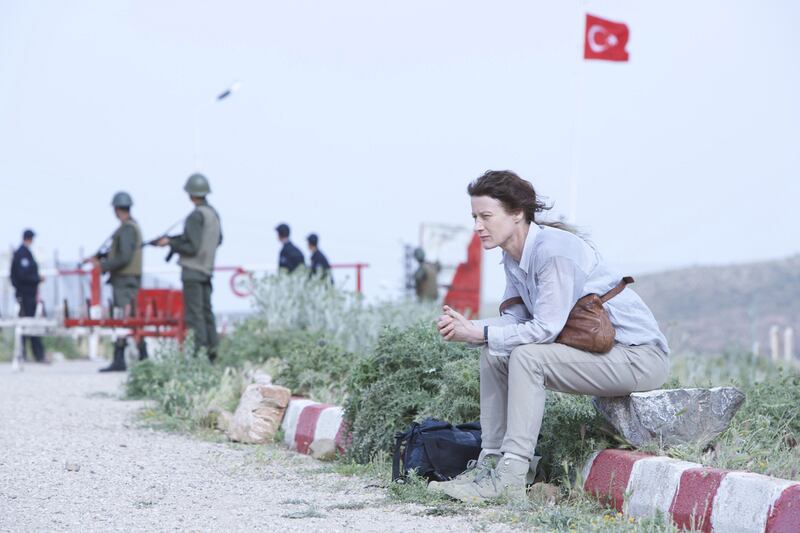Road to Istanbul features a powerful opening sequence in which, rather than speaking, a teenage girl holds up cards in front of a web camera announcing her intention to travel to Syria.
Elodie, played by Pauline Burlet, is from Belgium. The fact that she is European and not from a Muslim family but has nevertheless decided to go on jihad makes the scene, and the film, all the more powerful.
"I saw a similar video on the internet," says Algerian director Rachid Bouchareb at the Berlin Film Festival, where Road to Istanbul was playing in the Panorama section.
After Elodie leaves home, the film focuses on her mother, Elisabeth (Astrid Whettnall), and her attempts first to understand why her daughter would leave, and then to find the girl in Turkey before she crosses into Syria.
In telling the story of the parent of a child who becomes involved in extremism, the film has echoes of Bouchareb's previous film, London River, about a relationship forged between parents after a bombing in London.
"I wished for this film to go back to a story like London River, because it also references current events," he says. "I've heard of and met parents whose children have travelled to Syria, and I thought that this story was a good companion to London River – it's in the same streak."
By choosing to portray the family as non-Muslim, Bouchareb lends the story an added layer of complexity.
“What interests me in setting the film in Belgium, and having the girl from that background, is indeed the lack of direct reference to Muslim culture or roots,” he says. “I wanted to explore that. How come children who come from a different social background – they have a different race and they have a different religious desire – do that?”
Bouchareb, who was Oscar nominated in 2007 for his Second World War film Days of Glory, began researching Road to Istanbul by meeting parents whose children had gone to Syria. He read books on the subject too, including one by a mother from Toulouse, in France, whose child became a suicide bomber.
“Then I tried to forget everything that I’d read or heard,” says Bouchareb. “Because I wanted to get myself into the head of Elisabeth. How does she function, how does she work, how does she become a detective when no one is willing to help her and she has to carry out her own investigation, making up her mind to go to Turkey?”
It was also vital to the story, he says, that the daughter was young but not too young.
“I thought it would be interesting to give her the legal age [of consent], so she can make her own choices,” he says. “It adds a level of anxiety in the mother, in how to shape or shift their relationship.
“That is something that all children claim: ‘When I turn 18 I shall do this or that,’ and nothing changes on the 18th birthday. But if something happens, that is the limitation we have, in terms of what you can do as a parent in terms of guiding your child’s choices.”
The director had never been to Istanbul before filming, but wanted to make Turkey the central setting of the story because of how important the country has become geopolitically.
“For current events, what we are experiencing, Turkey has for a long time been the focus of all European concerns,” says Bouchareb.
“With the flows of refugees and wannabe fighters, it has an important place in the story. I think it’s the destination of most mothers and brothers that go there to try to find siblings and children who might, or might not, travel across to Syria.
“Everything is happening in Istanbul, and Istanbul represents Turkey.”
artslife@thenational.ae






